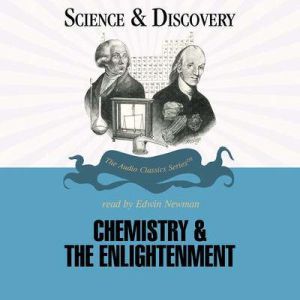
List: $9.95
| Sale: $6.96
Club: $4.97
Chemistry and The Enlightenment
Author: Dr. Ian Jackson
Series: The Science and Discovery Series
Narrator: Edwin Newman
Unabridged: 2 hr 40 min
Format: Digital Audiobook Download
Publisher: Knowledge Products, Inc.
Published: 04/29/2006
Category: Science
Synopsis
Modern chemistry emerged from the historical traditions of metalworking (beginning as early as the Bronze Age in 3500 BC); medicine (especially iatrochemistry, which emerged in the Renaissance); and alchemy (the medieval and mystical forerunner of chemistry). Alchemy was based on the Aristotelian concept of elements (earth, air, water, and fire) and Platonic ideas about pure essences (i.e. ideal forms). The modern idea of a chemical element began to emerge in Robert Boyles The Sceptical Chymist (1661). Boyle established a systematic approach to a vast subject in which detail frequently obscured basic principles. The 18th century theory of phlogiston appeared to explain combustion and respiration as giving off an inflammable substance. In 1774 Joseph Priestly discovered dephlogisticated air (later called oxygen). In Paris, Antoine Lavoisier recognized the real significance of this discovery, and used it to revolutionize chemistry through his 1789 work Traite elementaire de chimie. A chemical theory of atoms emerged in the early 19th century, and 31 new elements were discovered between 1790 and 1830. Dmitry Mendeleyev laid out the periodic table in 1869. Chemistry was ushered into the 20th century by organic chemistry, valence theory, and the electron theory of chemical bonding. Chemistry and physics would now be linked in an alliance that has had dramatic consequences for scientific progress and the modern standard of living.